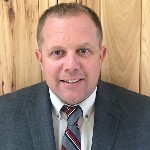
How school districts deliver Academic and Career Planning (ACP) varies widely depending on the district. Let’s look at Westby Area School District to see how they are using ACP to help their students determine their postsecondary direction.
Located in Western Wisconsin, Westby averages about 80 students per grade (gr. 6-12). “I don’t know that our kids know fully what they want to explore,” says Bob Bothe, Westby High School Principal. “Those conversations have been missing the last two and a half years [during the pandemic].”
Starting this year, however, Westby is going to build more connections between staff and students during advisory time. “The biggest barrier is opening up students’ eyes and minds,” says Bothe. He’s looking for “general and sometimes directed conversations about life and careers.”
Students are also using the Xello platform to identify their interests, which then helps staff determine promising pathways. A Destination Careers Academy (DCA) was developed last year for students interested in diesel mechanics and large equipment operation, for example. It offers early coursework and a head start on certifications.
Likewise, the school is introducing a Health and Science Academy in conjunction with Vernon Memorial Healthcare in Viroqua. “We are building that airplane in the air,” says Bothe. But labor market information indicates a huge workforce need, and eight students are interested.
As a smaller district, Bothe and his staff are leveraging partnerships within the community to provide key career-based learning experiences. “We can explore these opportunities right in our local communities,” he says.
And Westby has collaborated with their regional CESA, two-year colleges, and four-year universities to provide transcripted credit. The school also offers a career fair for juniors at WTC and another for all students and parents during the year. Career speakers and company tours help to round out exploration options.
It definitely needs to be more transparent, he says, so students are aware of their options, but we also need them to make the decision to commit. Once they commit, they see the need to get a certain grade to qualify, for example, and they get excited. “And when they’re excited, the staff is excited,” he says.
“We need great human beings with a skill set,” says Bothe. “That's what we want our graduates to look like.”
